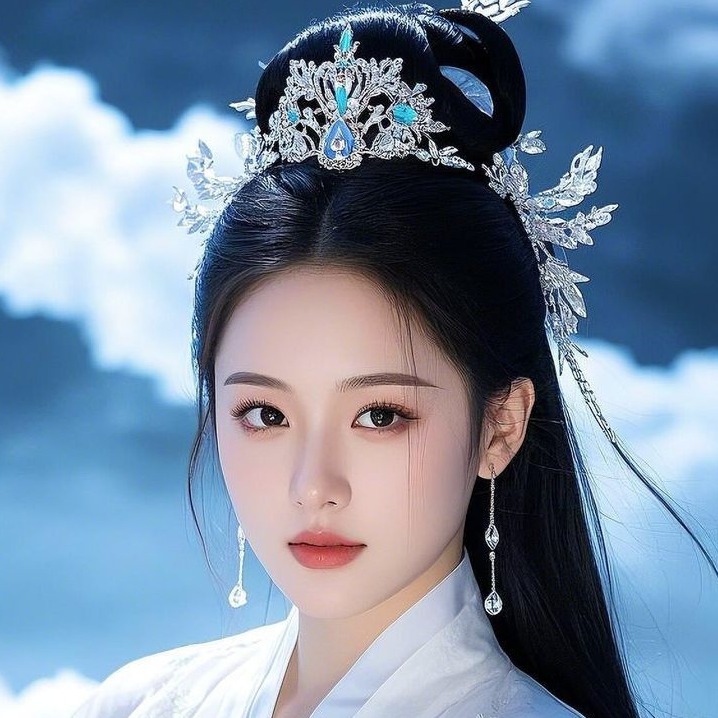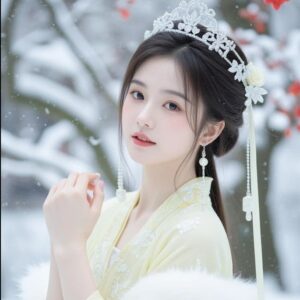The Evolution of Beauty in the Age of AI: Redefining Standards with Artificial Intelligence
Share this:

The Evolution of Beauty in the Age of AI sets the stage for an intriguing exploration of how artificial intelligence is revolutionizing the traditional concept of beauty. From skincare to fashion, AI is reshaping beauty standards in ways never seen before, ushering in a new era of innovation and inclusivity.
 When it comes to the intersection of AI and the beauty industry, there are several ethical considerations that need to be taken into account. From issues of bias and data privacy to the implications of AI-generated beauty content on societal perceptions of beauty, it is crucial to address these concerns in order to ensure the responsible use of AI technology in the beauty sector.
When it comes to the intersection of AI and the beauty industry, there are several ethical considerations that need to be taken into account. From issues of bias and data privacy to the implications of AI-generated beauty content on societal perceptions of beauty, it is crucial to address these concerns in order to ensure the responsible use of AI technology in the beauty sector.
The Concept of Beauty in the Age of AI
The traditional notion of beauty has long been associated with physical characteristics such as symmetry, clear skin, and a certain body type. However, in the age of artificial intelligence (AI), the concept of beauty is undergoing a significant transformation.AI is influencing and reshaping the concept of beauty by analyzing vast amounts of data to identify patterns and trends that go beyond conventional standards. This technology is enabling a more inclusive definition of beauty that encompasses diversity and individuality.AI in Beauty Standards
AI is being used in various ways to redefine beauty standards. One prominent example is in the field of fashion and beauty where AI-powered tools are utilized to create personalized recommendations for consumers based on their unique features and preferences. These tools can analyze facial features, skin tone, and style preferences to provide tailored beauty suggestions.Another application of AI in reshaping beauty standards is through the use of virtual influencers and models. These digital creations are designed using AI algorithms to challenge traditional beauty norms and promote a more diverse representation of beauty in the media.Furthermore, AI is also being used in cosmetic procedures to simulate the results of treatments before they are performed, allowing individuals to see potential outcomes and make more informed decisions about their appearance.Overall, AI is playing a significant role in expanding and redefining the concept of beauty in the modern age, moving towards a more inclusive and diverse understanding of what it means to be beautiful.AI in Beauty Industry
AI technology has revolutionized the beauty industry, offering innovative solutions and personalized experiences for consumers. From skincare to makeup and fashion, AI is changing the way products are developed, marketed, and used.AI in Skincare
AI is being utilized in skincare to analyze skin conditions, recommend products, and even create customized skincare routines based on individual needs. By using algorithms and machine learning, AI can provide accurate assessments and predictions for better skincare outcomes.AI in Makeup
In the makeup sector, AI is used to create virtual try-on experiences, allowing customers to test different products virtually before making a purchase. This technology helps consumers visualize how makeup products will look on their skin tone and facial features, enhancing the shopping experience.AI in Fashion
AI is also making waves in the fashion industry by predicting trends, optimizing supply chains, and personalizing recommendations for customers. Virtual stylists powered by AI can suggest outfits based on personal preferences, body type, and fashion trends, leading to more satisfying shopping experiences.Impact on Consumer Trends
The integration of AI-powered beauty technologies has significantly influenced consumer trends and preferences. With personalized recommendations, virtual try-on tools, and customized skincare routines, consumers are now more informed and empowered in their beauty choices. This shift towards personalized experiences is reshaping the beauty industry and driving innovation in product development and marketing strategies.Beauty Standards and Diversity
In the age of AI, there has been a significant shift towards promoting diversity and inclusivity in beauty standards. AI technology is playing a crucial role in redefining traditional beauty norms and celebrating a wide range of representations.AI-driven Inclusivity
- AI algorithms are being used to analyze and understand diverse facial features, skin tones, and body types, leading to more inclusive beauty standards.
- By recognizing and appreciating different forms of beauty, AI helps break stereotypes and fosters a more accepting and diverse beauty industry.
Importance of Representation
- Representation in AI-generated beauty content is vital as it allows for underrepresented groups to see themselves reflected in media and advertising.
- When diverse individuals are included in beauty campaigns, it sends a powerful message of acceptance, empowerment, and inclusivity.
Examples of AI Promoting Diversity
- AI-powered beauty apps offering a wide range of makeup shades to match various skin tones, catering to a more diverse customer base.
- Beauty brands using AI to create personalized skincare routines tailored to different skin types and concerns, addressing the unique needs of individuals from all backgrounds.
Ethical Considerations in AI and Beauty
 When it comes to the intersection of AI and the beauty industry, there are several ethical considerations that need to be taken into account. From issues of bias and data privacy to the implications of AI-generated beauty content on societal perceptions of beauty, it is crucial to address these concerns in order to ensure the responsible use of AI technology in the beauty sector.
When it comes to the intersection of AI and the beauty industry, there are several ethical considerations that need to be taken into account. From issues of bias and data privacy to the implications of AI-generated beauty content on societal perceptions of beauty, it is crucial to address these concerns in order to ensure the responsible use of AI technology in the beauty sector.

